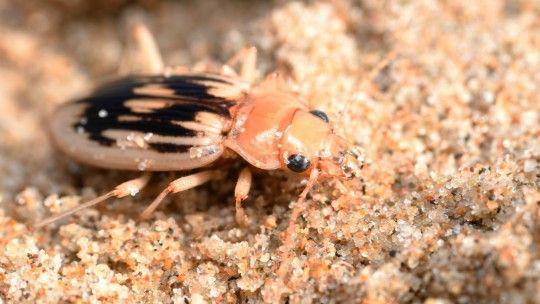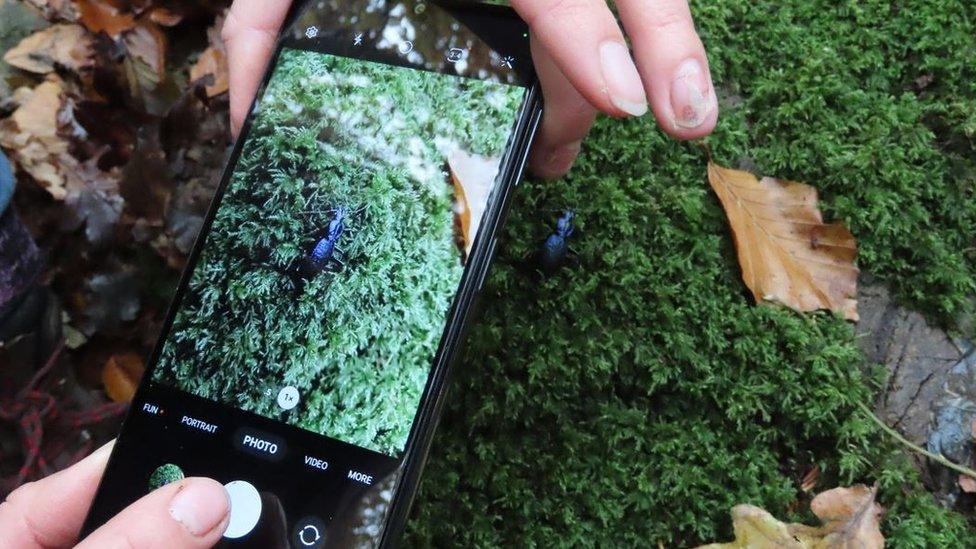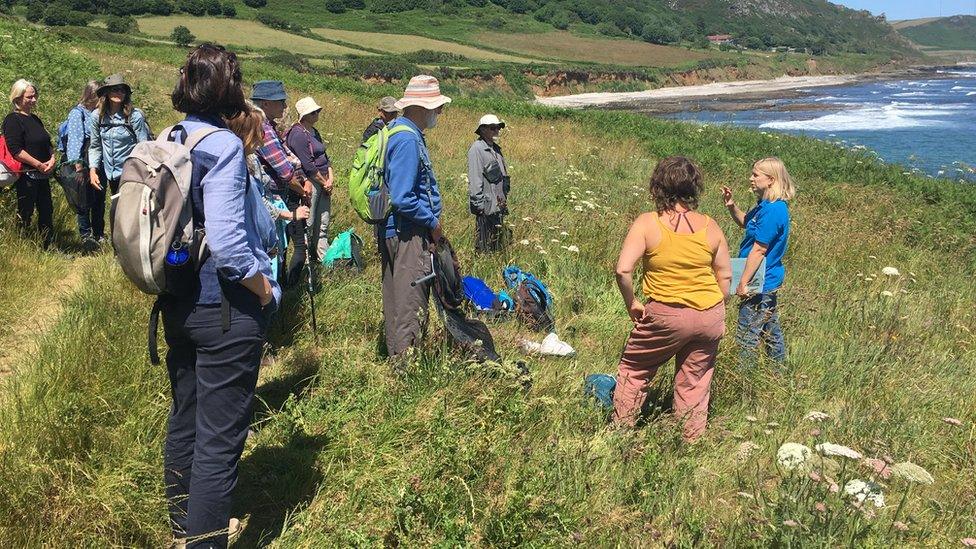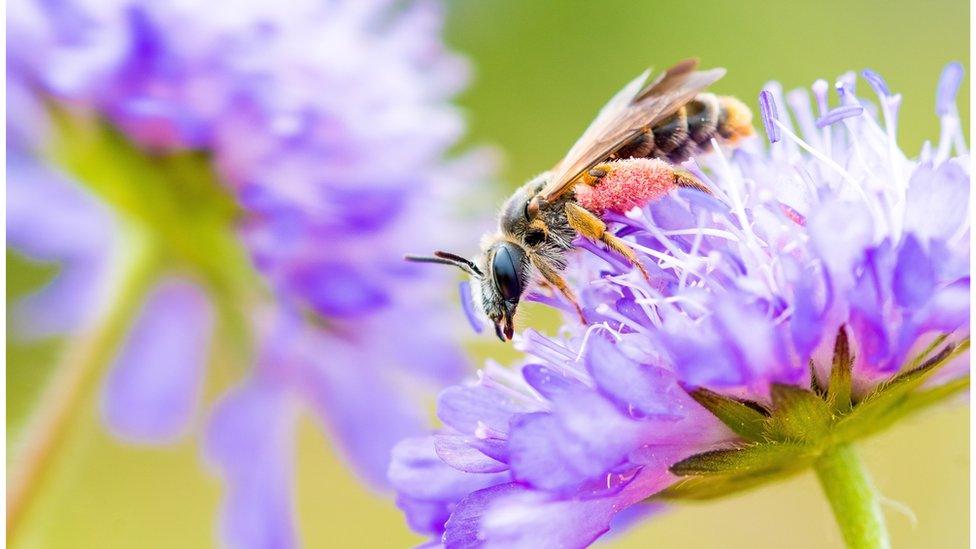Call for help to find potentially extinct beetle

Strandline beetles were last spotted in north Devon in 2002
- Published
People in the South West are being called on to join the hunt for a type of beetle last spotted in England in 2002.
The Strandline Beetle (Eurynebria complanata) which has black and sandy coloured patterns was last sighted in Braunton Burrows in North Devon 22 years ago.
Conservation charity Buglife said it meant the species was "potentially extinct" in England.
It has now launched a citizen science survey project in a bid to find out if "there are any unknown populations still out there waiting to be discovered".
Laura Larkin, from Buglife said: “It’s been suspected for a while now that these beautiful beetles have sadly been lost from England."
Strandline beetles are about 20mm (0.8in) long and live on sandy beaches, usually with sand dunes, where they hide under beach debris.
The beetles can still be found at a handful of sites in Wales, and Buglife is working to support these populations through the Natur am Byth!, external partnership programme.
The new project is supported by Natural England and wants to find out if there are any remaining populations of the six-legged beachcombers in north Devon, Cornwall or Somerset.
People are being asked to submit any photos, external they may have taken of beetles since 2000.
The charity is also asking beach cleaners to leave natural debris in place to protect the insect's habitat.
Ms Larkin added: "They’ve been missing in action now for over 20 years, and it would be great if we were able to learn more about them and help them to survive and thrive into the future.”
Follow BBC News South West on X (formerly Twitter), external, Facebook, external and Instagram, external. Send your story ideas to spotlight@bbc.co.uk, external.
- Published16 January 2023

- Published16 January 2024

- Published7 December 2022
